-
ABOUT US
-
ACADEMICS
Curriculum Program
Departments
- English
- High School Chinese
- Primary and Junior School Chinese.
- High School Mathematics
- Middle School Mathematics
- Primary School Mathematics
- Music and Fine Arts
- Physical Education
- Physics
- Chemistry
- History and Geography
- Physical Science and Optional courses Department
- Middle School Biology
- High School Biology
- Social Sciences
- Computer Science
- Courses in Primary School
Achievements and Matriculations
College Counseling
Science & Technology Innovation Contest
Subject Competition
-
ARTS
-
ATHLETICS
-
AT SHSID
SHSID ∣ TIMES
PTSA
Club Exhibition
- 龙吟社
- Live 2 Drama
- Choir
- Hip-pop Dance Club
- The Primary School Dance Troupe
- Symposiums Club
- Biology Workshop
- You Shan
- VEX Robotic
- Peking Opera Club
- Baseball Club
- Model United Nations
- The World Scholar’s Cup
- Future Problem Solving Club
- United States Academic Pentathlon
- OM Club
- AMC Club
- Music for Patients
- SHSID Gazette
- Smile Charity
- Cultural Moments
- SciAcademy
- Stem Doge Alliance
- Chinese Debate Club
- IAA
- Mock Trial Club
- Zhengming Club
- Furry Friends
- GT-Racing
- Village Radio
- IMMC Club
- Creative Design and Intelligent Fabrication
- Future City Research Project
- ECOCAP
- AdvocaSEA
- SPDC
- Medishine
- Floorball Club
- Animusic MTC
- Wings Up
Health and Wellness
Campus Safety
Cafeteria Service
-
ADMINISTRATION
-
ADMISSIONS
-
ALUMNI
Alumni Information
Honors Students
- Class of 2025
- Class of 2024
- Class of 2023
- Class of 2022
- Class of 2021
- Class of 2020
- Class of 2019
- Class of 2018
- Class of 2017
- Class of 2016
- Class of 2015
- Class of 2014
- Class of 2013
- Class of 2012
- Class of 2011
- Class of 2010
- Class of 2009
- Class of 2008
- Class of 2007
- Class of 2006
Who Studied at SHSID
SHS Foundation
-
DOCUMENTS
High School Biology Apartment: Biology Open Classes
The phenomena of life are variable, and the subject of biology is, therefore, all-encompassing. In teaching biology courses, biology group teachers will make full use of teaching resources and strive to explore different teaching methods to teach students. This semester, the high school biology division has offered four excellent open classes for students of various grades and levels, fully reflecting the diversity of biology classroom models and differentiated teaching concepts.
On the afternoon of November 14th, Mr. Deng Xiao conducted an open class for G10 students in the recording room of Zhongxing Building on the "Situational simulation: Detailed Explanation of the Photosynthesis Process." The process of photosynthesis is one of the difficult points in the G10 biology course, involving many complex concepts. Mr. Deng first guided the students in reviewing the structure of chloroplasts, where photosynthesis takes place, and explained essential concepts such as "photosynthetic system" and "electron carrier" to the students. Afterward, Mr. Deng guided the students to simulate the transfer route of chlorophyll electron pairs in the light-dependent reaction process through role-playing in the form of storytelling. Students on the stage performed the process of light-dependent reactions vividly through their understanding of the process combined with Mr. Deng's instructions. At the end of the class, after discussion amongst the students, a graph of the energy level changes of electron pairs during the light-dependent reactions was drawn. Mr. Deng's concise explanation and the students' outstanding performances not only enlivened the classroom atmosphere but also deepened the students' understanding of the light-dependent process.
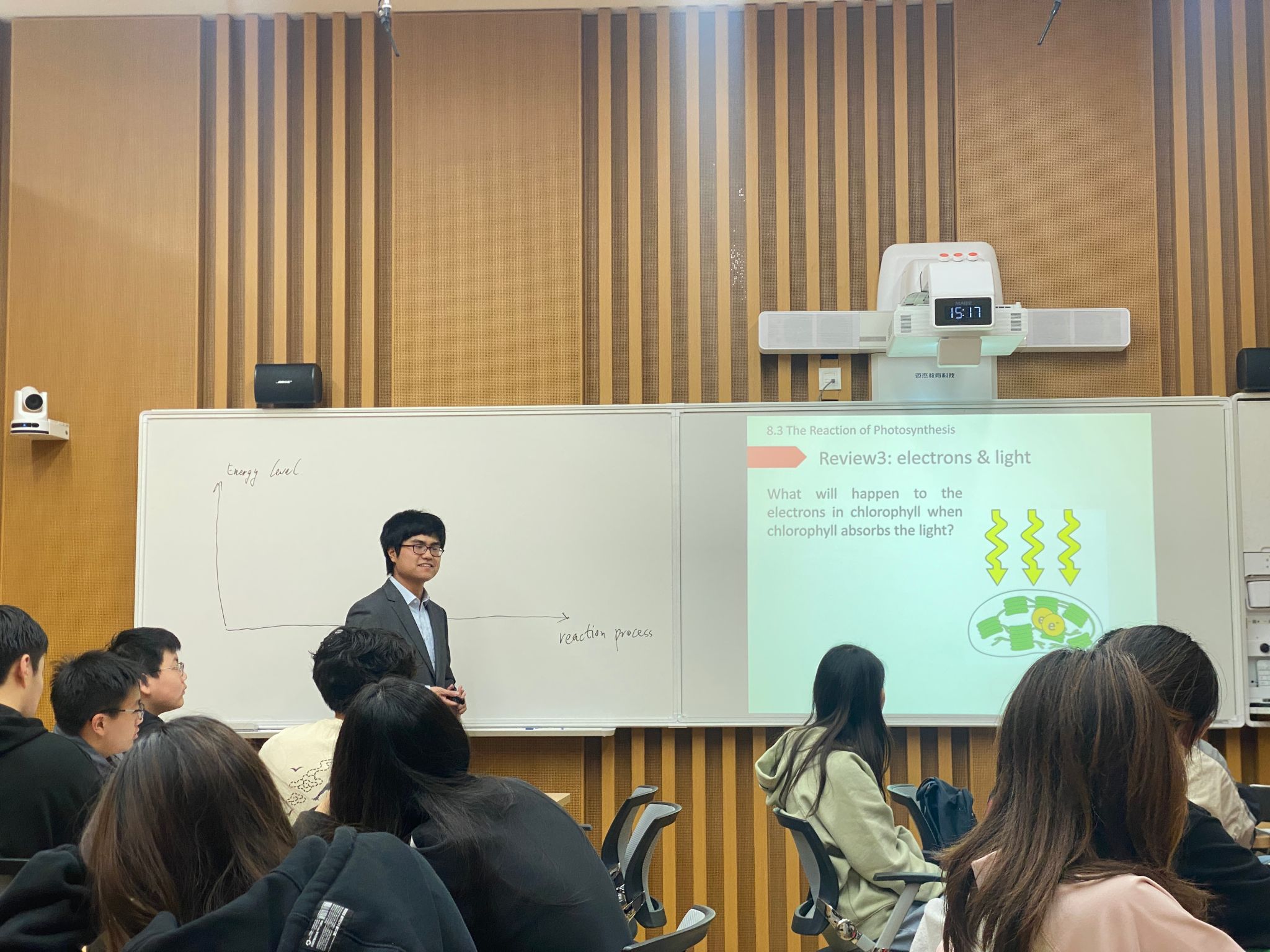
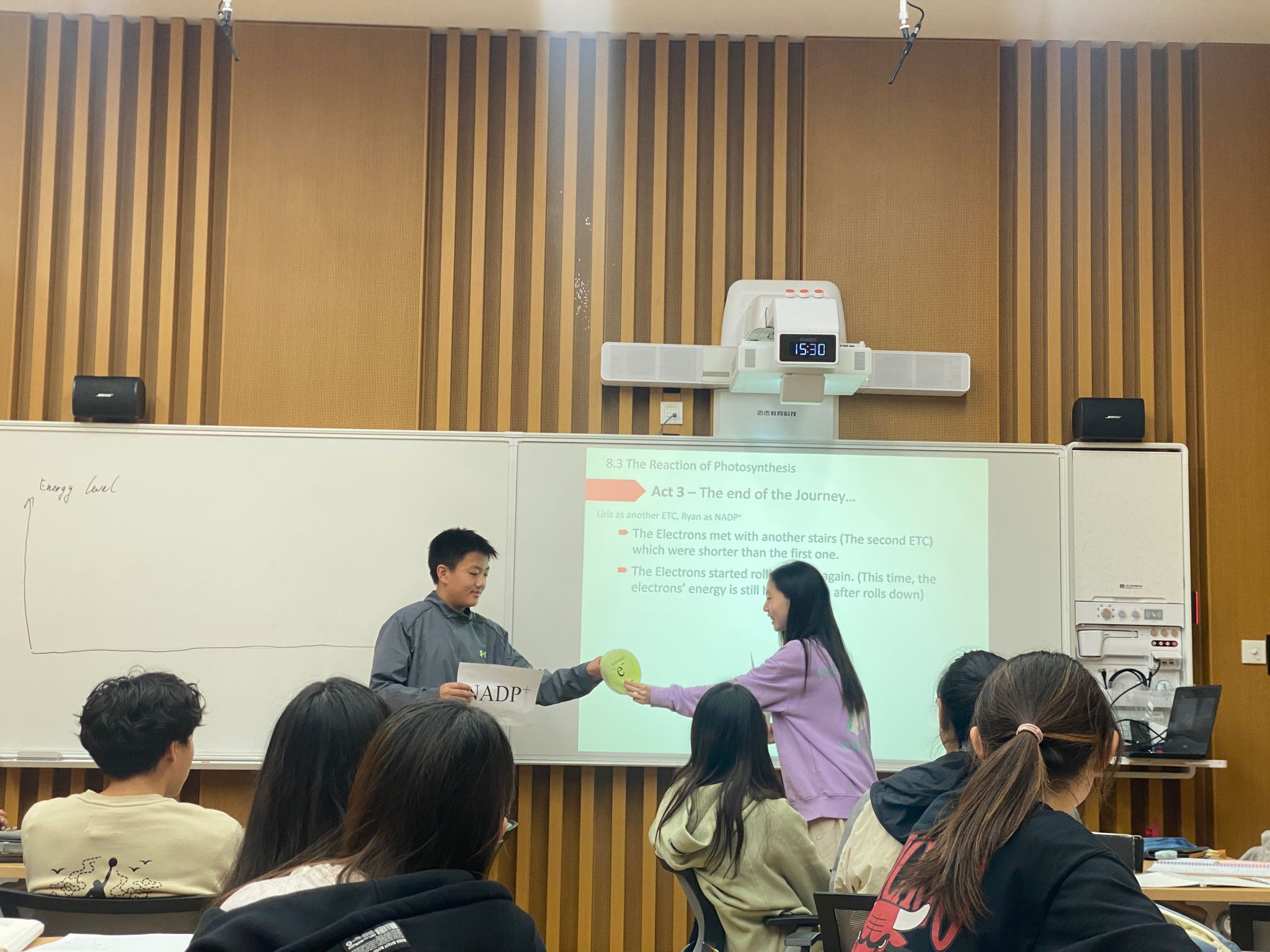
On the morning of December 16th, Ms. Li Yongchi gave an open class titled "Decoding the Secrets of Life: The 2024 Nobel Prize and the Journey of Gene Regulation of Small RNA" to G11 students in the recording room of the Zhongxing Building. Victor Ambros and Gary Ruvkun were awarded the 2024 Nobel Prize in Physiology or Medicine for discovering microRNA and its role in post-transcriptional gene regulation. Ms. Li used this as an introduction to lead the students to consult relevant materials and describe the characteristics and functions of microRNA. MicroRNA, as a non-coding RNA, can specifically bind to messenger RNA to regulate gene expression. Afterward, Ms. Li introduced the students to the online microRNA - miRDB database. Ms. Li guided the students in searching the database to query and summarize the microRNA sequences and their targets in several different species. Ms. Li's open class not only initially constructed the important biological cognition of "post-transcriptional regulation" for the students but also gave the students a more intuitive understanding of the cutting-edge fields of present biological disciplines.
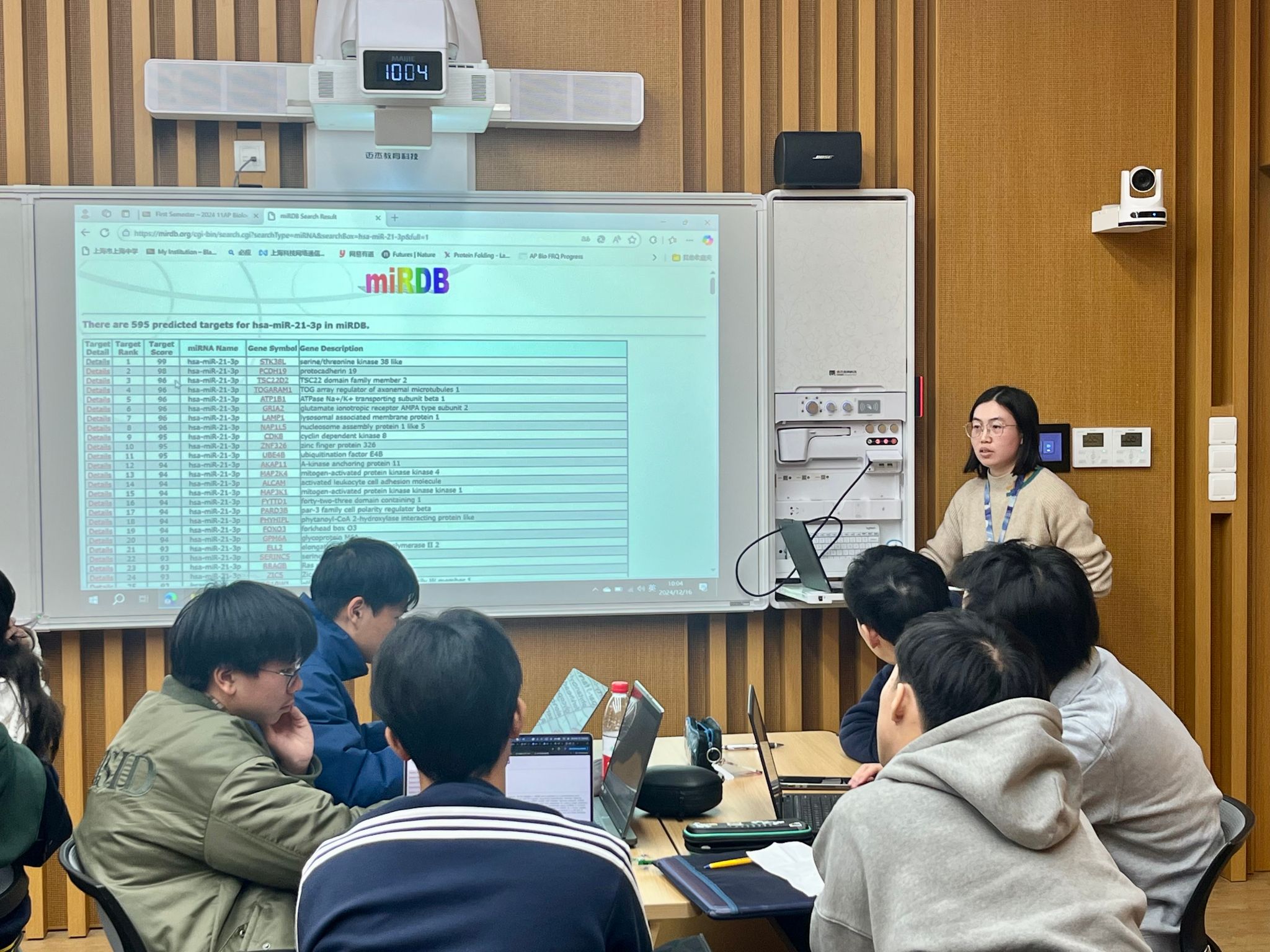
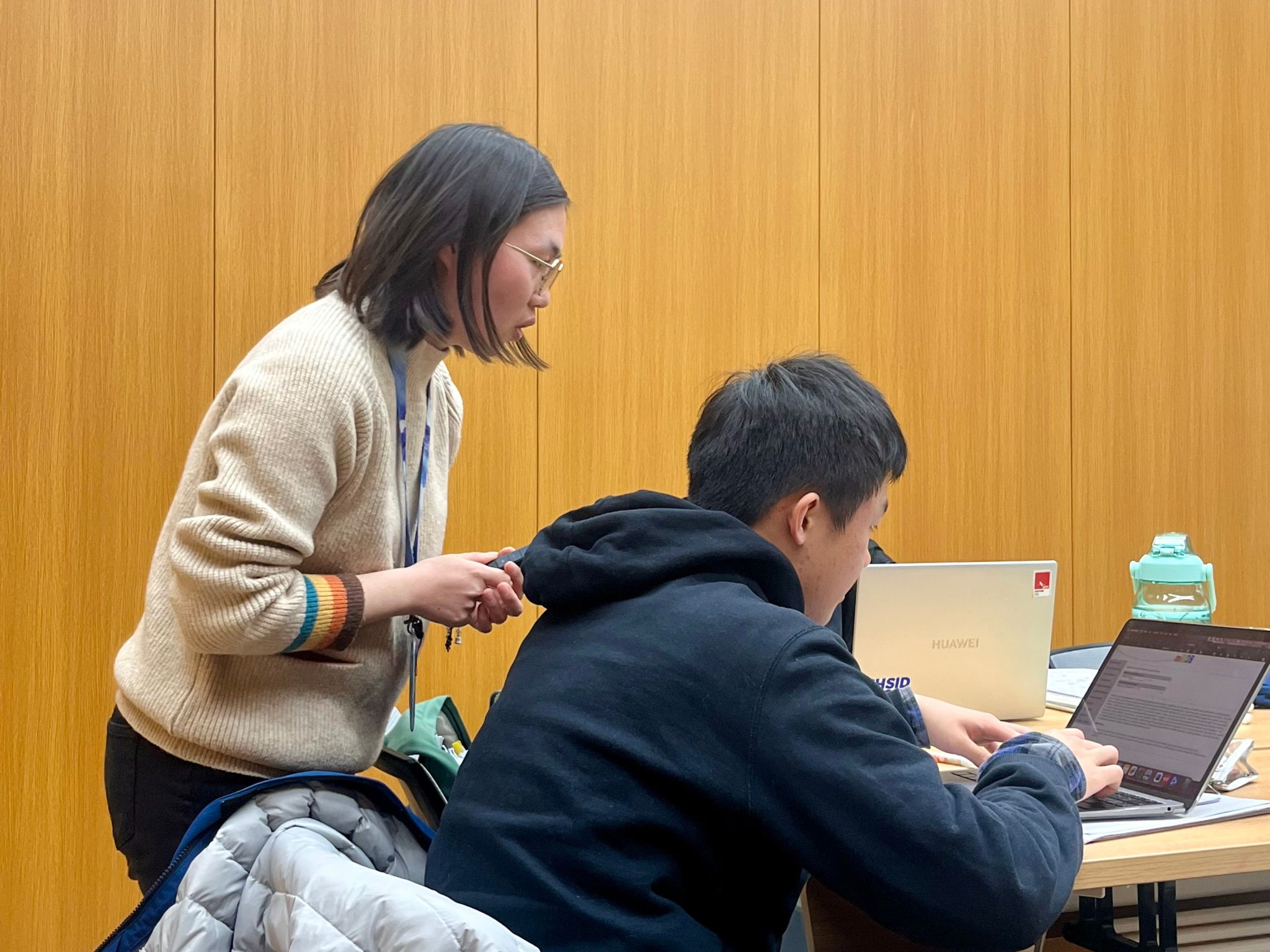
On the morning of December 16th, Ms. Wang Peiyao held an open class for G9 students in Classroom 318 of Zhongxing Building with the theme of "Mind Mapping to Sort out the Destruction of Biodiversity by Human Activities." Biodiversity, an important indicator of environmental protection and ecological balance, is integral to ecology content. Ms. Wang first introduced the three types of biodiversity to the students and took two ecological communities as examples to guide the students in analyzing the information in the cases. After considering and discussing, the students concluded that biodiversity can be described from two perspectives: richness and evenness. Then, Ms. Wang explained the value of biodiversity in medical, agriculture, and ecological aspects by listing products in daily life. After that, Ms. Wang guided the students to discuss how human activities would threaten biodiversity in the form of mind maps and encouraged the students to think about how to protect biodiversity. The students discussed enthusiastically, constantly put forward new ideas and conclusions, and gradually enriched the mind map. Under the guidance of Ms. Wang, the students had a more comprehensive understanding of biodiversity and subtly developed environmental awareness of sustainable development and biodiversity protection.
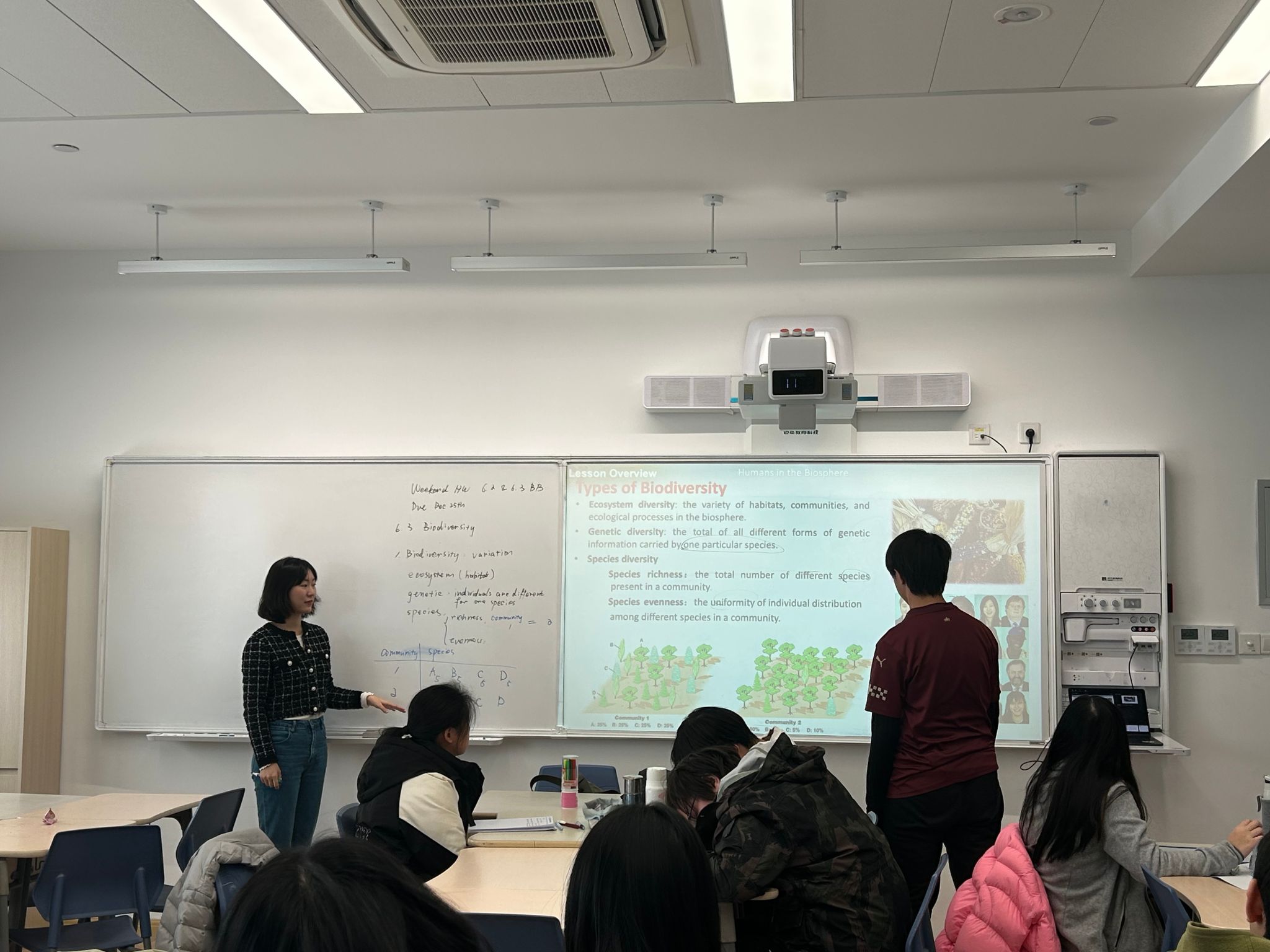
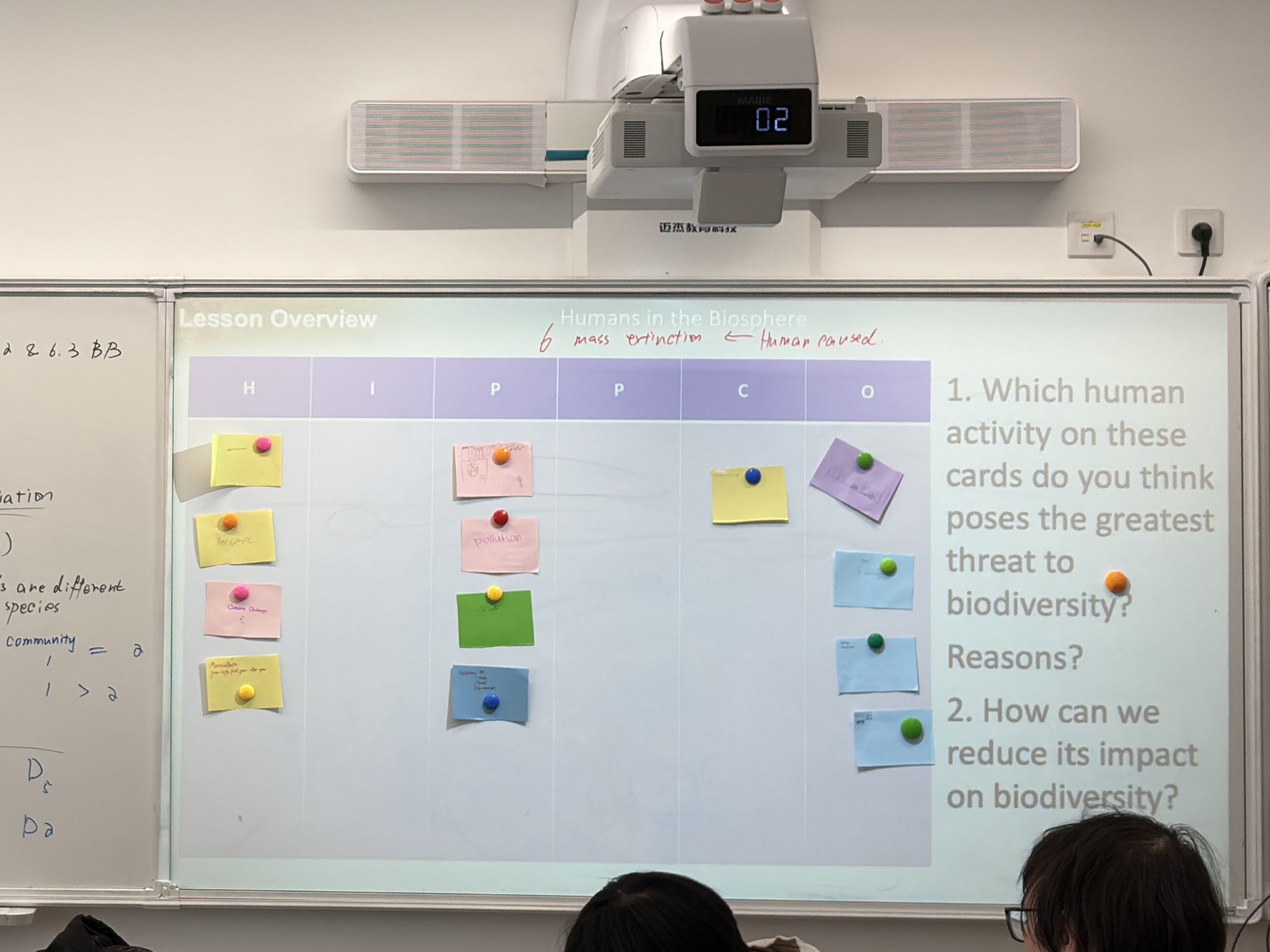
On December 18th, in the afternoon, Mr. Liao Hui held an open class, "If I were an examiner of the IA evaluation system under the new curriculum," in Classroom 301 of Xianmian Building. In the context of new changes in the IA curriculum, how to write an IA that meets the requirements and is involved in academic depth is one of the key points of the IB course. Mr. Liao first briefly introduced the scoring criteria for the new IA syllabus for the students and distributed two IA examples for the students to read and evaluate in groups. During the 20-minute evaluation time, the students enthusiastically discussed the strengths and weaknesses of the two sample papers from experimental design, data analysis, self-evaluation, etc., striving to give a fair and just score. After the evaluation, Mr. Liao summarized the students' scoring results and guided them in explaining their marked scores. During the explanation, the students argued with reason and demonstrated their evaluations' objectivity and accuracy by citing the IA case's content. The students' clear logic and objective and fair evaluations won the praise of all the teachers present. Through multi-angle analysis, the students gradually understood the new IA scoring mode and will use the knowledge they've learnt to improve their IA papers.
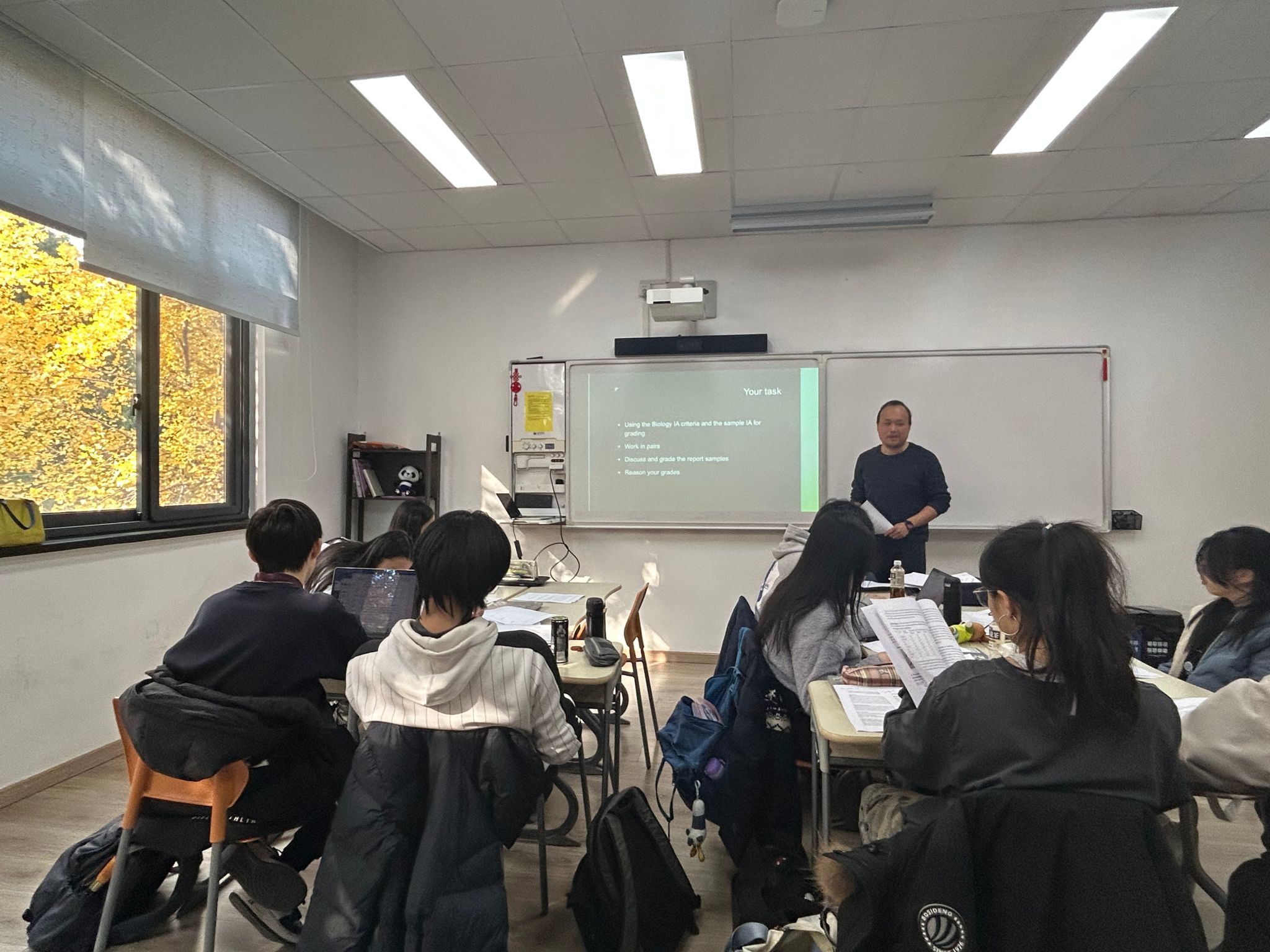
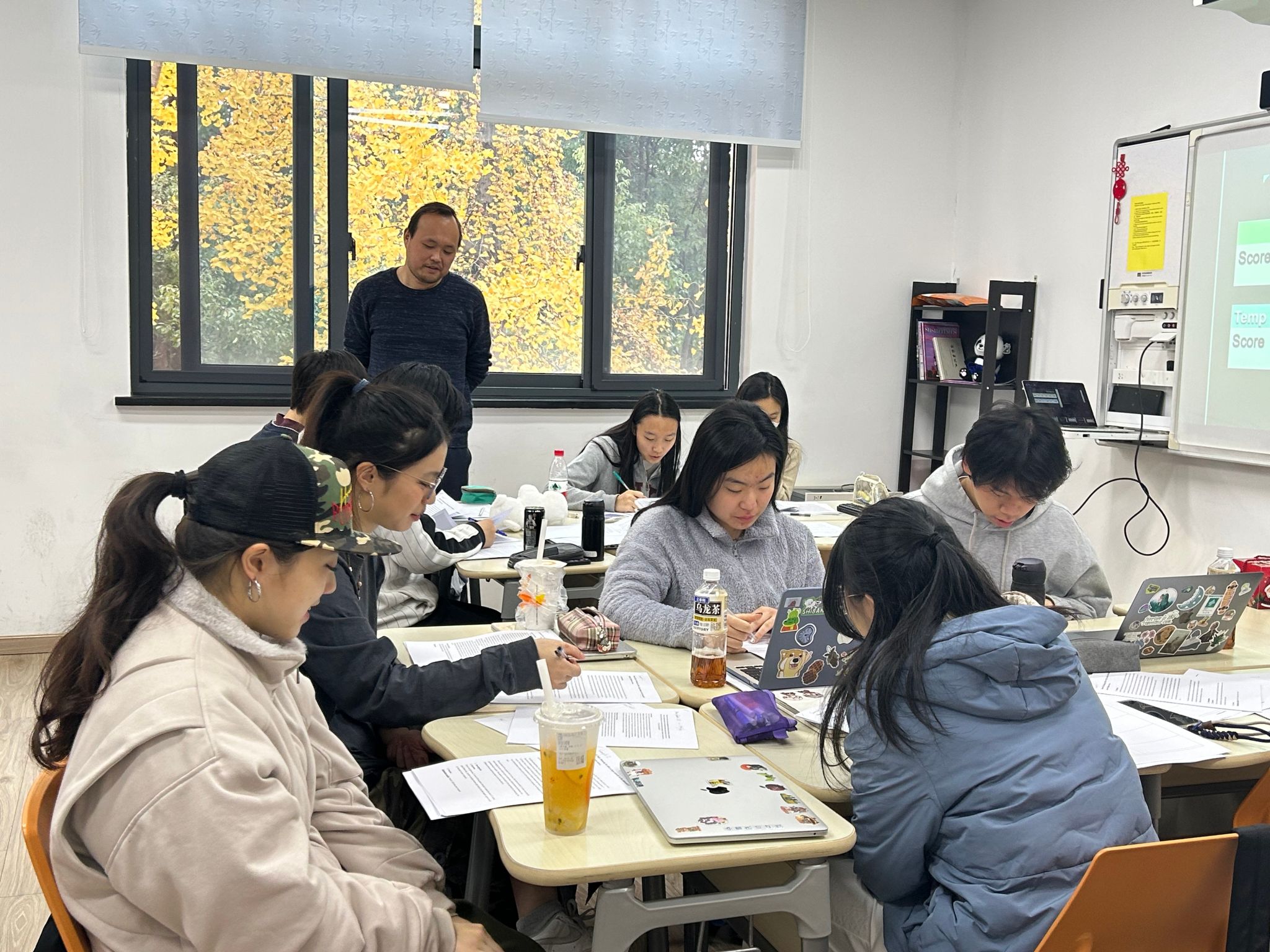
Open classes provide opportunities for students to experience innovative teaching and are also good windows for teachers to communicate and improve their teaching methods. Biology teachers will seek more variable teaching methods that are more suitable for students when communicating and presenting, and they will continue to explore personalized teaching methods that combine theory with practice, integrating education with entertainment.
(Written by Xiao Deng Pictures by teachers of High School Biology Department Edited by Cody Turner Reviewed by Qian Zuo)